You have come to the right place if you are looking for fun, engaging and exciting Manners themed activities to do with toddlers, preschoolers and kindergartners. Our activities are widely used by teachers, moms, dads, child care providers and more!
All our activities are available at no cost and are free to print and share. Select below to get started.
Manners Arts and Crafts
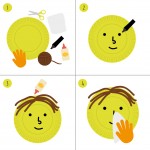
Cover Your Nose When You Sneeze
Need:
Paper plate
Tissue (Kleenex)
Color
Markers
Yarn
Whatever to make a face on the paper plate.
Trace there hands on construction paper and cut out for them unless they can cut that good. Glue crumbled tissue over nose and then glue hands over tissue.
Talk about covering our nose with tissue when we sneeze, saying excuse me. Remember to be an example to the kids doing the same.
Manners Games and Activities
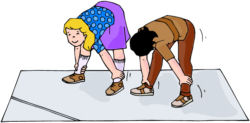
Role Play
Role play the following situations. . . .
1.Two children are sitting at a table coloring. One child needs a crayon that is out of his/her reach. It is within the reach of the other child. What should the first child say to the other child nearest the crayons? (Choose two children to act this out.)
2. The children are in line at the drinking fountain. Another child asks the second child in line to let him/her have “cuts” in line. What should that second child in line do? (As many children may role-play this activity as the teacher desires).
3. The teacher is giving directions and one child in the class has a question to ask about the directions being given. What should that child do?
4.It’s a cold day outside and one child has a sweater and a coat. Another child has no sweater or coat and is wearing a short-sleeved shirt. What should the first child do in this situation? (Choose two children to act out this situation. Either use a real sweater and coat or just pantomime putting them on.)
Please and Thank You
~If you were the only person in the world, you wouldn’t need manners. But there are lots of people in the world, and good manners help everyone get along together.
~When we ask for something we say “Please”, when someone gives us something, we say “Thank You”.
~At lunch time, we know we wash our hands and sit up straight at the table. And we know that its not polite to talk with our mouths full.
~When we play together, everyone has a good time when we share, and are polite to each other.
~When we are playing with our friends, it is not polite to whisper about someone who is near by, because it might hurt their feelings.
~It is not polite to interrupt someone who is trying to talk.
~Everyone likes a person who has good manners. Good manners make everyone happened make you a person who is nice to know.
Question Time
~What should you say if you walk in front of someone? You say “Excuse me”
~Moving over so someone can sit down is called? “Sharing”
~When you ask for something you say…..”Please”
~When you receive something you say….”Thank You”
Quality “Manner” Control
I have those “rules” on pasteboard, hanging in our playroom, and we assign an area to someone each day, and that person helps everyone else to remember how to use his manners.
Manners Game
You will need a collection of pictures (cut from magazines, each showing children or adults experiencing one of the emotions. Glue to identical sizes of heavy construction paper or card stock. Number Some children have no words to express how they feel. They need to hear such words as “happy,” “sad,” “angry” and “afraid” if they are to understand their emotional experiences.
During circle time, hold up one of the pictures and ask the children how this person feels. (If they do not know, tell them.) Ask the children to talk about what they see that makes them Activity Stack at least three pictures of each emotion on a table in your classroom. Mix up the order of the pictures. Hand the stack to a child and ask him to group all the sad pictures together, Either at a table or during circle time, show several pictures portraying the same emotion and ask the children to identify how all the people feel.
Polite Puppets
Things you will need: small paper bags; Marking pens; Rubber cement; Scissors; Construction paper. Children like puppets because they can safely pretend to be someone else without fear of criticism. The ability to project What to do: Using a small paper bag, make a sample puppet whose face expresses one of the basic emotions. Set materials on the table in the art area and invite the children to make their own happy, sad, angry or Want to do more: Create your own puppet family, each puppet expressing a different emotion. Use these puppets to put on brief skits for the group.
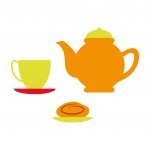
Manners Tea Party
Celebrate good manners with a tea party. Discuss the manners that will be necessary at the party. Make honeybuns and have tea.
Miss Bee Polite
If you’d like your little ones to begin making choices about mannerly behavior, keep this activity in mine. First have each child make a Miss Bee puppet. To make one, draw a smiling face on one yellow paper plate and a frowning face on a second plate. Color tow craft stick black. But two small circles from black construction paper; then glue a circle to one end of each craft stick to represent antennae. To the back of one plate, tape the craft stick antennae at the top of the plate. Tape another craft stick to the bottom of the plate for a handle.
Glue the backs of both plates together. When each child has made a puppet, have him use his puppet during this group time activity. Using each of following suggestion, describe a situation in which proper or improper manners were used. Direct each child to display either the happy or sad expression on his puppet to indicate if Miss Bee Polite would approve or disapprove of the behavior. After using the following suggests, encourage volunteers to contribute scenarios of their own.
1. Beatrice Butterfly said, “Pass the flowers, please”
2. Gracie Grasshopper said, “thank you,” when she was given a treat.
3. Bobby Bumblebee bumped his brother off the beehive.
4. Arnie Ant waited his turn in line.
5. Carl Caterpillar crunched quietly.
6. Chrysy Caterpillar chatted with her mouth full.
7. Sammy Spider played with his food.
8. Christopher Cricket chirped wile another cricket was chirping.
9. Casy Cricket chirped, “Excuse me,” before interrupting.
10. Lucy Ladybug borrowed a leaf without asking.
Honey Of A Game
This honey of a game will give your little one practice using the magic words “please” and “thank you”. In advance, cut honeycomb shape from yellow construction paper, then add details with a marker. Remove Miss Bee Polite’s straw hat and place it in a chair that is near, but facing away from your group area. To play, seat the class on the floor.
Ask a volunteer to sit in the chair, wear the hat and pretend to be Miss Bee. Place the honeycomb under the chair Ask miss Bee to close her eyes, then quietly choose another child to tiptoe to the chair and take the honeycomb. The child then returns to the group and sits on the honeycomb. As miss bee to open her eyes and face the group. Recite this chant:
(Class) Miss Bee Polite, your very sweet. May we please have a honey treat?
(Miss Bee) Miss Bee Polite says, “Yes, you may.”
(Class) “Thank you, thank you” we all say.
Give Miss Bee several chances to guess who took the honeycomb before revealing the child, if necessary. The child who took the honeycomb then becomes Miss Bee. Continue until each child has been queen bee.
Sticker Fun
Miss Bee Polite recommends making a batch of stickers to remind youngsters to use good manners. Or use the stickers as rewards for those who make an effort to show exceptional etiquette. Simply use a black marker to draw stripes on a set of yellow dot stickers (the kind like for yard sales—my input ) Encourage a child to press a sticker on his hand or clothing. Your room is sure to be buzzing with “bee-utiful” behavior!
Housekeeping Manners
Place a container of Honeycomb cereal in hour housekeeping area along with napkins, small paper plates, and a spoon. Set Miss Bee on the center of the table. Encourage each child to have a seat a the table, obtain a napkin and a plate, and serve himself a spoonful of cereal. Remind youngsters that Miss Bee will be watching for polite table manners.
Kindness Pledge
Ask your kids what it means to be kind or to be a friend or to be nice, whatever they call it. I really made a list of their answers and put them in a rhyme. It is short, but to the point. It was important to me that the words were theirs- because they need to be able to understand what they are promising! Our pledge goes like this:
Today I pledge to be kind,
to use the nicest words I can find.
Today I pledge to try to share,
to wait my turn and to be fair.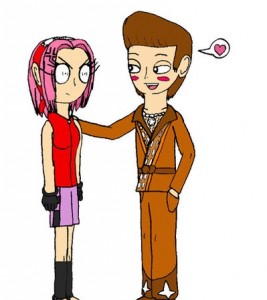
Sharing Obstacle Course
Set up an obstacle course and have the children go through it moving in one direction. Remind the children about politely taking turns — good practice for children who have trouble waiting for slower children ahead of them.
Phone Manners Fun
Have the children practice using the telephone, dialing properly, and how to ask for their friend:
Hello, May I please speak to _________, Also practice how to answer the phone, “Hello” and “I’ll get my mother”
Manners Role Play
Role play answering the door and greeting a friend for a play date. After the visit, the child says, thanks for coming “; after the visiting friend says, “Thanks for having me.”
The Gift of Friendship
Remind the children how good people feel when they give someone a gift and the person shows their appreciation. What are some ways to show your appreciation? “Thank you,” “it’s beautiful!”, “It’s just what I wanted,” “I love it!” Have the children draw names and make a gift (picture) for the name they drew. Gibe their friend the gift. Then have the children make thank you cards with markers or crayons for the picture.
Manners Chart
We also made a chart and asked the kids to help me think of times when it is important to say “please” and “thank you” (i.e. Please, pass the salt) and we posted them on the board.
Keep Your Hands To Yourself
The kids and I talked about keeping our hands to ourselves (not pushing, not invading others’ space). Then the children paint their handprints onto a piece of construction paper. The older ones wrote “I can keep my hands to myself”.
Sharing
Each child brings in a toy or special item to “share” with the group. We talked about how good it makes us feel when we share things.
Share Cooking
Each child had a “job” when we made cupcakes… I explained about how the cupcakes would not turn out if each of us did not share in the work.
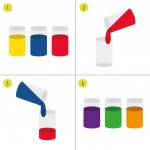
Sharing Colors
I made each child a cup of colored water–red for one, blue, and then yellow for the third. I then took empty cups and let red add some water and then blue (made purple)..and yellow added to blue (green) and red and yellow (made orange). Reinforced this double lesson with a chart (drew circles and in them wrote “Red” + “Blue” = “Purple”…etc…) and let them color them as they completed each mixing.
Let’s Listen
I took the kids for a walk and when we got home, we discussed different sounds we heard, what we talked about on our walk, etc..easy, open discussion.
Cover Up and Block the Yuck
First read the book “Cover your nose when you sneeze” Then we took a paper plate and I let the kids draw a self portrait on the front. Next they traced their hands on colored construction paper and placed a kleenex, then the hand cutout on top and stapled it (over the nose of their picture) onto the paper plate.
Sharing Box Fun
Make a sharing box that contains two or three toys for each child. Place the box on the floor and let each child choose a toy to play with. Set a kitchen timer to go off after several minutes. When the children hear the timer bell, have them put their toys back into the box and choose other ones. Then set the timer bell again.
For Parents
I print this out in letter form and send it out to all parents during MANNERS week.
THREE WAYS TO FIND COOPERATIVE BEHAVIOR
1) List ten things you would like your child to do. Spend five minutes, twice a day, looking for those behaviors. Each time your child does something on the list, put a check by the item. Be generous in interpreting the child’s behavior.
2) Ask someone to help you look for desirable behavior. See how long a list you can make in ten minutes. Try again an hour later.
3) Ask your child’s teacher, day care provider, or scout leader to tell you three things your child does well.
TEN WAYS TO ENCOURAGE DESIRABLE BEHAVIOR
1) Smile at your child.
2) Offer your child a hug.
3) Praise the behavior, “Thank you for walking quietly.”
4) Watch him while he practices the piano or any other activity
5) Acknowledge your child with a nod when he enters the room.
6) Put a happy face sticker on her hand.
7) Read a book or watch TV with your child.
8) Write a note to your child acknowledging his effort.
9) Make a point to attend events your child participates in; such as sports or theater.
10) Write a letter to a friend at the table while your child is studying.
THREE *RULES* FOR EFFECTIVE PRAISE
1) Be specific. “Good job sharing your dinosaurs,” is much better than, “Good boy!” Children need to know exactly what they’re doing right. You can praise effort as well as success by saying, “I like the way you tried to…”.
2) Be sincere. Don’t exaggerate praise. A child will probably not believe the statement, “That’s the best drawing I’ve ever seen,” but will respond positively to, “I sure like the way you drew this part of the picture up here. How did you do that?” or, “I can see that you worked really hard on this.”
3) Be immediate. You must praise children while they still remember what they did. Young children need information right away. For example, “Thank you for closing the door gently. I like the way you remembered to do that.”
FIVE EXAMPLES OF EFFECTIVE PRAISE
1) Nice work–making your bed.
2) Well done!–you put away all the toys.
3) I noticed–you helped your sister get a drink. That was kind.
4) I’m glad–you remembered to use words when you’re mad.
5) Good try!–most of the cereal is in the bowl.
~the above from the book Magic Tools for Raising Kids by Elizabeth Crary
Manners Recipes and Snacks

Snack Sharing
Give each child a different kind of fruit for snack (apples, oranges, raisins, etc) and let the children share their snack with one another so that everyone has a variety.
Manners Songs, Poems and Finger Plays
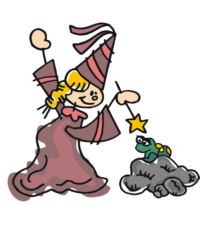
Magic Words
There are three little magic words
That will open any door with ease.
Two little words are “Thank you!”
And the other little word is “Please!”
Manner
We say, “Thank you.”
We say, “Please.”
We don’t interrupt or tease.
We don’t argue. We don’t fuss.
We listen when folks talk to us.
We share our toys and take our turn.
Good manners aren’t too hard to learn.
It’s really easy, when you find.
Good manners means
JUST BEING KIND!
Getting Along (rhyme)
We know how to get along
every single day.
We take turns and share a lot
While we work and play.
Share your Toys (sung to row, row, row your boat)
Share, Share , share your toys,
share them with your friends
It’s so much fun to share your toys,
sharing has no end.
Thank You Tune: If You’re Happy and You Know It
When my grandpa gives me something,
I say “thank you”.
When my grandma gives me something,
I say “thank you”.
I can see it makes them happy
When I say it so politely
Yes, good manners mean to always
say “thank you”!
If I spill my drink at lunch
I say “I’m sorry”.
When I break something of yours
I say “I’m sorry”.
I can see it makes you happy
When I say to so politely.
Yes, good manners mean to always
say “I’m sorry”!
If I bump into someone
I say “excuse me”.
If I need to interrupt
I say “excuse me”.
I can see it makes people happy
When I say it so politely
Yes, good manners mean to always
say “excuse me”!
Table Manners (Sung to: Frere Jacques)
Chewing quietly, chewing quietly
Do not slurp, do not slurp,
We must say excuse me,
We must say excuse me
When we burp,
When we burp.
Three Nice Mice (3 blind mice)
3 Nice Mice
3 Nice Mice
See how nice they are
see how nice they are
They’re always polite when they nibble their cheese
they never forget to say thank you and please
they cover their noses whenever they sneeze
ahhh ahhh ahhh-choo (pretend sneeze)
3 nice mice 3 nice mice
Super Manners (Sung to I’m a Little Teapot)
I have super manners. Yes, I do.
I can say “Please,” and “Thank You,” too.
When I play with friends, I like to share.
That’s the way I show I care!
Never, Never Pick Your Nose By G. B. Lipson
Pick a flower
Pick a rose
Pick a treat
Or pick your toes (just kidding)
Pick some buttons
Pick some bows
Pick some jeans
Or fancy clothes
Pick some friends
Or pick some foes
But never, ever
PICK YOUR NOSE!!
YECH!
Table Manners by Gelett Burgess
The Goops they lick their fingers,
And the Goops they lick their knives;
They spill their broth on the tablecloth-
Oh, they lead disgusting lives!
The Goops they talk while eating,
And loud and fast they chew;
And that is why I’m glad that I
Am not a Goop – are you?
Before I Eat My Meals (To the tune of: If You’re Happy and You Know it)
Oh, before I eat my meals, I wash my hands, (scrub, scrub)
Oh, before I eat my meals, I wash my hands, (scrub, scrub)
Oh, it’s very smart I think, Sends those germs right down the sink.
Oh, before I eat my meals, I wash my hands. (scrub, scrub)
Oh, before I eat my meals, I set my place, (set, set)
Oh, before I eat my meals, I set my place, (set, set)
I set everything I need, I feel very proud, indeed.
Oh, before I eat my meals, I set my place. (set, set)
Oh, before I eat my meals, I pass the food, (pass the plate)
Oh, before I eat my meals, I pass the food, (pass the plate)
‘Cause we know it’s only fair For us all to have our share
Oh, before I eat my meals, I pass the food. (pass the plate)
Pass the Peas Please by Dina Anastasio.
If you run over a sand castle
Created by your brother
Kneel down and say, “I’m sorry.”
Then just help him build another
When you see someone who’s different,
Don’t laugh. It isn’t fair.
He might think you are different,
But he doesn’t point and start
If you’re angry at a friend,
Don’t punch or kick or shout.
Go for a walk and count to ten,
Then try to talk it out.
No one likes to lose a game,
But if you must, you must.
So if you lose, shake hands and say,
“We’ll play again, I trust.”
It’s hard to keep a secret,
But secret telling’s wrong.
Remember, friends who blab too much
Aren’t friends for very long.
If your father’s talking on the phone
When he should be playing ball,
Don’t kick or sulk or whine, “Let’s GO!”
That will not work at all.
Don’t interrupt your uncle
When he’s talking ’bout his car.
Even though it’s boring –
Well, you know how uncles are!
When you’re eating mashed potatoes,
And there’s something you must say,
Please wait until you’ve swallowed.
The thought won’t go away!
If your brother has a cupcake
That’s he’s saving for tomorrow,
Don’t take a bite, not even one,
Or he’ll be filled with sorrow.
If your neighbor won’t stop talking,
And you feel a yawn come on,
Put your mouth behind your fingers,
Until your yawn is gone.
Don’t eat spaghetti with your knife,
Your fingers or a spoon.
Use your fork, although it’s hard.
You’ll catch on pretty soon.
When you’re outside playing soccer,
And kick someone in the knee,
Don’t tell him that he’s in your way.
Say, “Sorry. Pardon me.”
Don’t play with Grandma’s dishes
If you father has forbid it.
but if you do, and if they break,
Don’t say your sister did it!
We all leave toys and clothes around.
It’s O.K. just once or twice.
But if a king and queen should come to call,
They might not think it’s nice.
When someone’s in the bathroom,
And won’t get out, don’t worry.
Just knock and say, “I’m waiting.
I must come in. Please hurry.”
Don’t play the drums or sing a song
When somebody is sick.
Just tiptoe by and give a wave,
And say, “Please get well quick.”
When your sister’s busy practicing,
And you really want to hide,
Don’t cover your ears or make a face.
Just smile and go outside.
Towels that are soggy
Will not dry someone’s back
So toss them in the laundry,
Or hand them on the rack.
When your sister gets a bicycle
And you just get a kite,
Don’t say, “You like her better!”
Say, “Thank you. It’s just right.”
If a friend is having trouble,
And he falls and gives a yelp,
Don’t laugh or point or call him names.
Say, “Are you hurt?” and “May I help?”
If there’s something very special
That you’d really like to borrow,
Ask before you take it,
And bring it back tomorrow.
If your great-aunt gives you candy,
And your friends would like a lot,
It’s nice to share a little,
Even though you’d rather not.
When you’re going to a movie,
And the line is two blocks long,
don’t butt in front. Go to the end.
Then calmly hum a song.
When you’re sitting at the table,
And want some extra peas,
Don’t shout out, “Gimme more of those.”
Say, “Pass the peas, please.”
Related Books
The Berenstain Bears Forget their Manners
Manners, by Aliki.
It’s a Spoon, Not a Shovel, by Carolyn Buehner.
Say Please by Virginia Austin
Perfect Pigs: An Intro to Manners by Marc Brown and Stephen Krensky
What Do You Say, Dear? and What Do You Do, Dear? by Sesyle Joslin
Monster Manners by Bethany Roberts

Dear Reader: You can help us make this theme even better!
All of our theme ideas have come from our imagination and from reader submissions. Please use this form to contact us if you have crafts, activities, games, recipes, songs or poems that you would like us to add to this theme.

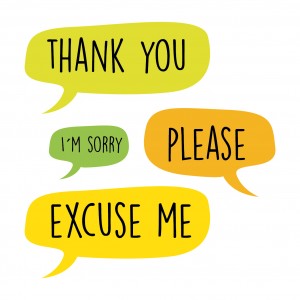

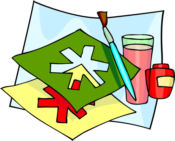

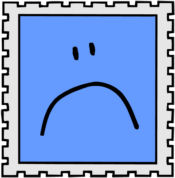
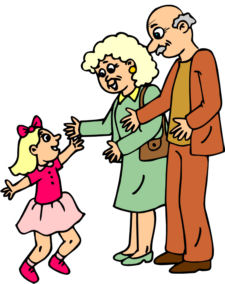

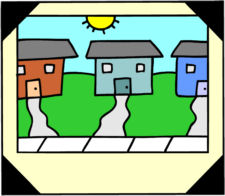
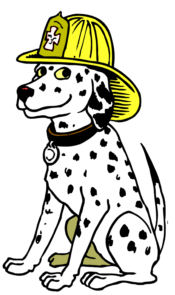
8 comments:
It’s such a wonderful site! Very resourceful/teaching aid for teachers and parents teaching etiquettes in schools and at home.
I really really appreciate this site. It’s so helpful.
It’s a wonderful site.I found everything I was looking for to teach etiquettes in class with lots of activities.
This is really,really wonderful very helpful.
Thank’s a lot.
Being a librarian I enjoy reading books to students of all subjects, I usually follow stories with fun songs and activities. These activities and songs are wonderful, thank you so much!!
What an awesome website! Thank you 🙂
Thank you very much, I find this post very helpful
I really appreciate this site